I’v been staying in India for around eight years now, so I think I have a lot of experience to share. I mainly stay in the state of Kerala, so my experience is mainly based on dealing with tourists and locals in this locality of South India.
In this post I would like to focus on the main mistakes people new to India make (especially women), as I don’t see them being addressed often enough, and some are not addressed at all.
I also give a few important tips that will prove helpful during your stay here.
- My views represent India’s majority
- The lack of culture awareness
- Outrageous behavior of many western tourists
- The clothing issue
- How to dress for different places
- Paying for everything too much
- Fixed prices vs. bargaining
- Too much attention
- People working in tourist sector are different
- You are a target in India
- Being approached by strangers
- What to do if you are followed in India
- Being loud
- Beware of these money issues
- Beware of stray dogs
- Display of wealth encourages materialism and unhappiness
- Conclusion
My views represent India’s majority
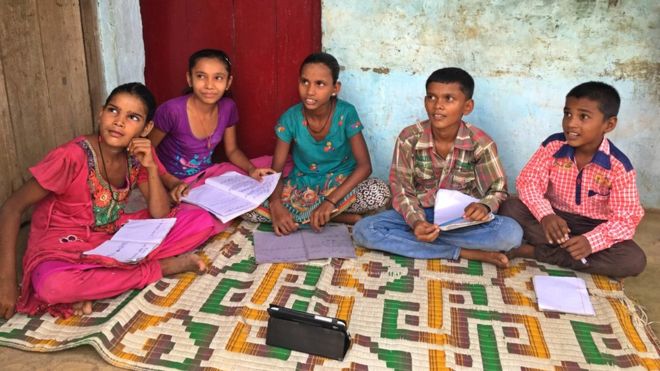
Poor Indian kids 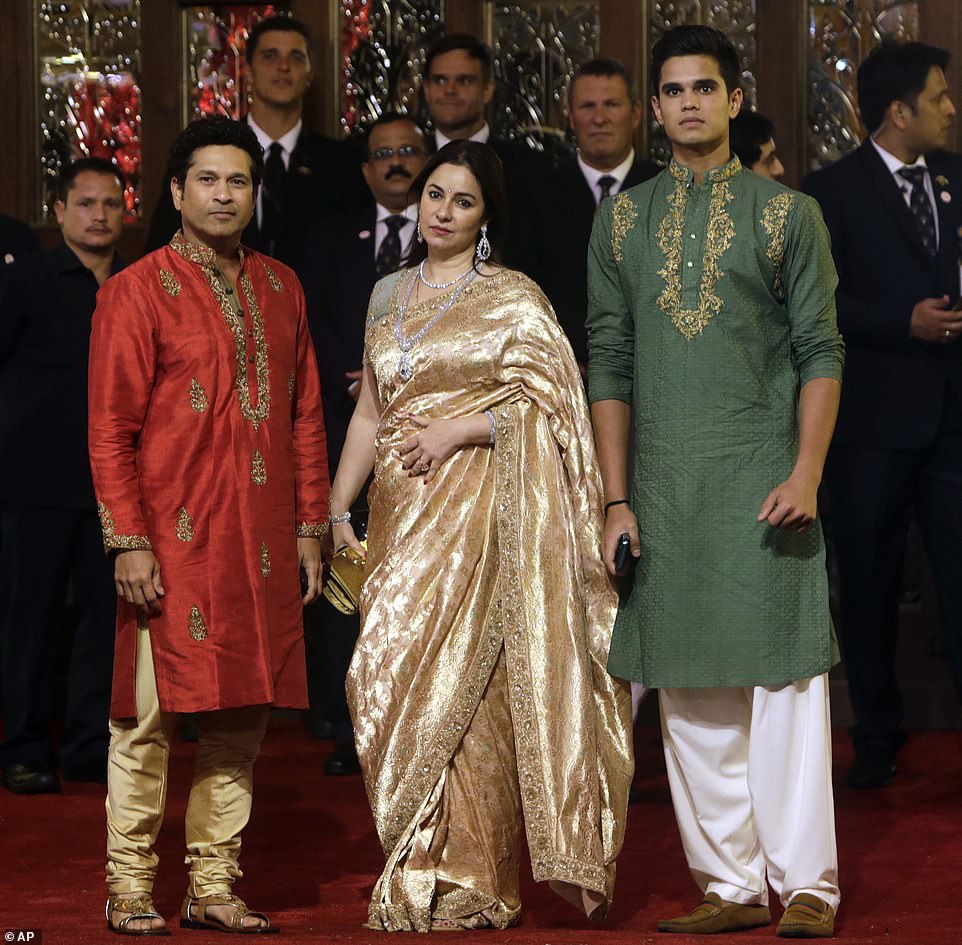
Wealthy Indian family
Although some may complain that what I say is too traditional and conservative, I’m speaking not for the India’s richest class which…
- Copies the western way of living,
- Owns smartphones and laptops,
- Is fluent in English,
- Is able to interact online and express its modern views.
But here I’m speaking for the vast majority of middle-income earning population as well as those who are considered poor, from whom you don’t hear anything at all with the exception of their voices being made heard in the West through certain famous activists like Arhundati Roy.
The rich class makes up maybe 1% of the Indian population (!), and the middle-income earning class makes up around 8%; which means that 91% of Indians are poor if we are looking at the amount of money that they make.
So yes, my views may be different from the views of modern Indians who are largely exposed to the Western ways of living and are the ones that can express their views online. But the rich of India make up a terribly small percentage and their views largely differ a great deal from the views of the rest of the population.
The lack of culture awareness
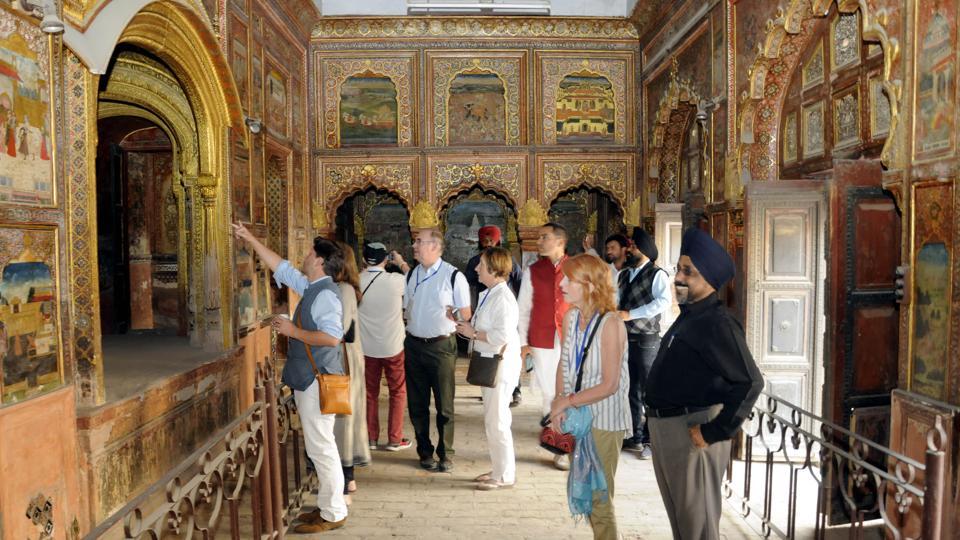
Most of the problems to do with westerners visiting India (though not all) stem from the fact that they do not read about the culture before coming here.
They are completely unaware of the accepted norms. Most don’t care, and after a week’s holiday of partying, alcohol use and being involved in one-night stands (which is very common, unfortunately) they return to their countries, leaving a long-lasting terrible impression on the Indian mind.
Maybe that’s why I don’t want to make friends with most foreign people here. Rarely anyone bothers to respect the culture. And many actually believe that their outrageous behavior is something to be envied.
No wonder most Indians think westerners to be literally insane.
Indians are entertained when they encounter foreigners on trains or in any other public location. It’s like a free movie to them. So if Indians smile when watching foreign people, it doesn’t necessarily mean that they approve or like how tourists act; they might just be entertaining themselves with their crazy behavior!
Outrageous behavior of many western tourists

One-night-stand culture is unthinkable to most Indians who date largely with marriage in mind. It’s unthinkable to me too, and thanks God I am not exposed to it much, because I avoid interactions with people who lead such a lifestyle.
When I was new to India and single, I once visited Nepal and an American guy asked me out. We went to a restaurant and then he asked me a million questions (I felt like being interrogated) and then he concluded that we are right for each other. So the next question was… to visit a hotel together!
I almost fell out of my chair. This was so insulting. I felt without any value. No wonder I have an Indian boyfriend – this culture is full of warmth, and it’s about long-term-commitment rather than meaningless sexual engagements with strangers.
One-night stand culture to me is a proof that people no longer value each other, that they no longer view each other as human beings but more like sexual objects. The culture that approves of one-night-stands is materialistic and completely hollow.
When Indians start working in a tourist field and they see foreign tourists frequently engaging in one-night stands, this makes them believe that all westerners have very low morals and that intimate relationships with them will not lead to anything long-term.
That’s the reason most Indian men do not marry Western women that they date – they just can’t trust them, having seen so many “proofs” that it’s too easy for them to slip.
They are also shocked by seeing women drinking and smoking. In traditional places, Indian women do not drink or smoke, only men do. So again, this leaves a bad taste in their mouths when it comes to the western image.
The clothing issue
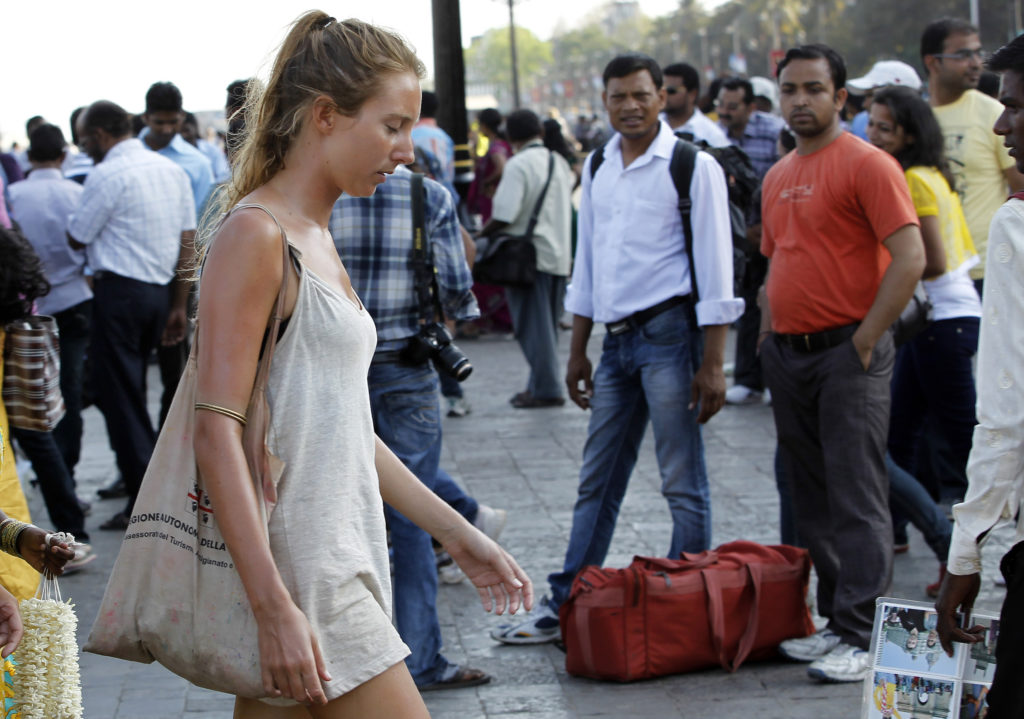
99% of foreign women visiting India’s beaches walk in bikinis, which is not acceptable in India. Indian men sometimes even go to beaches just to watch those “loose women”. Yes, that’s how Western women are perceived here, because of the way that they dress and how they behave in general.
Whilst in the West revealing clothes are associated with empowerment, that’s not the same in India. In India, revealing clothes are associated with low morals.
Empowerment in India is more perceived as flexibility and intelligence. A woman who is sure of herself is empowered. People who need to reveal their bodies are not necessarily empowered; some have very low-self esteem and they feel better about themselves if they attract glances as a result of their revealing outfits.
Women in India do swim in the sea, but they do it in their normal clothes, or t-shirts and shots. Although in the West spending time on the beach this way is quite unthinkable, it’s important to keep in mind that India is not one’s home. So tourists should ideally abide by the cultural rules of the country they visit as this is a polite way to express respect for the culture.
I’ve been staying here for around eight years and not even once did I stay on the beach in a bikini. I wear t-shirt and leggings for that. In fact, I was even in the West behaving in a similar way, feeling extremely uncomfortable to show my body in a bikini to strangers. So the Indian lifestyle is very acceptable to me.
Of course, the richest class of India, the youth, try to copy the West and some women do stay on the beach in a bikini, drink, smoke and have one-night-stands. Soon such women start feeling empty and confused, and it’s still a rarity to see such women anyway.

This kind of behavior doesn’t reflect the rest of the culture but is practiced only among the youth of the very rich, higher-income earning educated women, or sometimes very wealthy middle-aged women too.
I think the fact that so many Western women have to reveal so much, like showing off their cleavages in low-cut garments, shows that their self-esteem is low. When you’re happy with yourself you don’t need to draw attention to yourself in such extreme ways.
In fact, when you’re happy and confident about yourself you don’t want to draw attention to yourself at all, let alone to your body. I get the sense of incompleteness about women who strive to get attention this way.
I did wear some short dresses when I was sixteen, but that’s because I was unsure of myself at that age and I did not know my value at that time. Also, I was raised in a culture (in Lithuania) where women strive to look very sexy in order to appeal to men.
So knew no better, and that’s another big reason why women dress this way, of course. My intelligence was only forming then, and my self-esteem was low. It all changed when I started meditating.
So I understand that for some women it is normal to dress this way because they have no better example. Therefore, it doesn’t have to be only a low self-esteem issue. But many women of the West, unfortunately, do have low self-esteem, which is also shown that many of them quickly agree to be with any man who shows even a little attention to them.
Thus, it’s to do with what your’e exposed to, what culture surrounds you, what kind of education you receive from your parents and whether you give into the peer pressure or not.
Unfortunately, Western women lose their innocence so quickly due to the materialistic and sexualized culture they grow up in, and it’s almost impossible to find truly innocent faces in the West, but India is still full of them.
I think a woman who shows a lot of her skin loses much of her mystery. I actually discussed this with my Indian boyfriend, and he holds the same view, saying that the more the woman covers herself, the more mysterious she appears (and he by no means meant burka, but just wearing non-revealing clothes.
Staying on the beach in a bikini is so normal for Westerners that most have no idea that this is shocking to an Indian mind and is a sort of insult. My boyfriend also told that when he for the first time in his life went to a beach where foreigners were sunbathing, it was the shock of his life to see women that were almost naked.
So whether you agree with this or not, it is wise to adjust to the culture you’re visiting; Also, it’s important to keep in mind that what the media portrays for years as good and acceptable, might not be so at all. But about that maybe in another article.
How to dress for different places
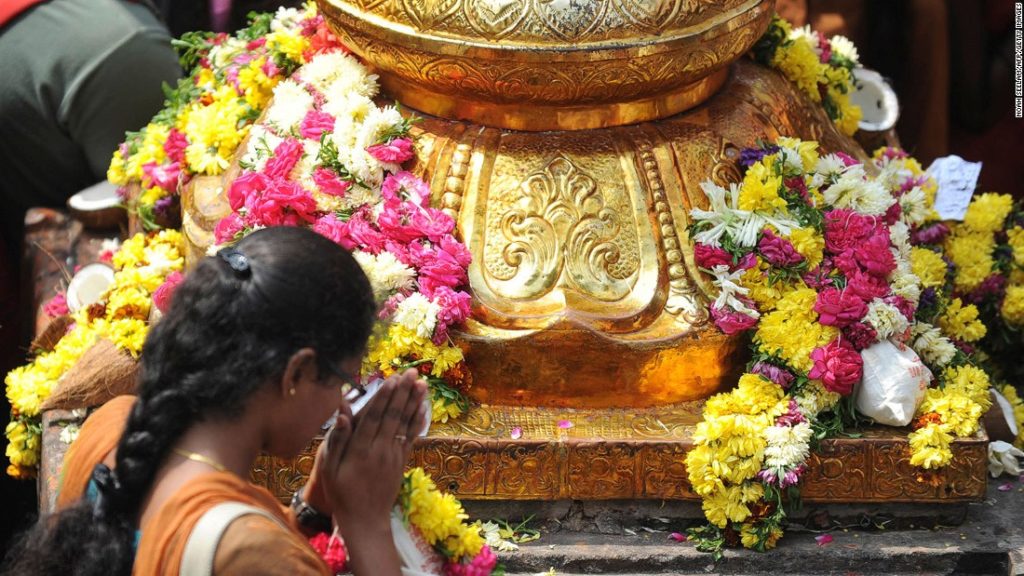
If you’re visiting a developed city, like Bangalore, Mumbai or some parts of Delhi, dressing in a more revealing manner can be done, but you still need to be careful about your safety as you may be followed by weird men.
However, if you are in a local area, where you see women dressed traditionally, you should dress in a non-revealing manner too. By doing this you show that you know about their culture and appreciate it. You will gain their respect with such behavior.
You should especially be careful about not dressing revealing clothes when visiting holy places, especially temples. No cleavage should show! You should use a scarf to cover the cleavage, and also your legs should be covered, and sometimes half the arms should be covered as well.
It’s a huge insult for Indians to witness tourists disrespecting their holy places by visiting them in revealing clothes.
Paying for everything too much
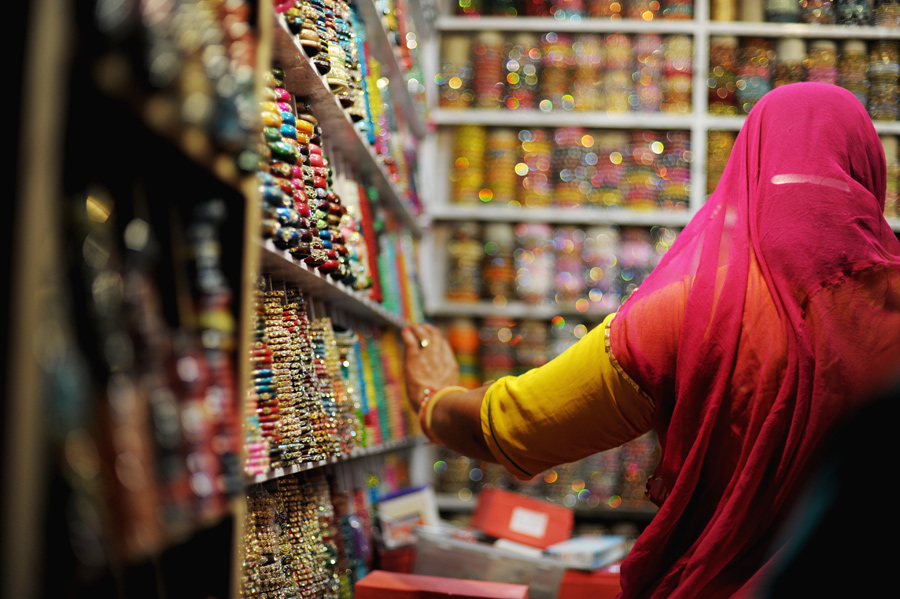
Another mistake people make when visiting India is that they pay too much for everything, sometimes even ten times more. That’s because they’re used to American or European prices, so they don’t realize how cheap everything in India is.
This also applies to Kerala, which is the richest, cleanest and most educated state of India; yet it’s still very cheap compared to the life in the West.
Also, people working in the tourist industry have the “sixth sense” about new tourists. They just know if you’ve been here for a while or you’re fresh. So if they see a new tourist, they do all it takes to make him or her overpay, or they will sell them something low-quality if the price is cheap at the start.
So you have to be careful about this, and you need to negotiate hard. You should reduce the price to the 10% of their quote and refuse to buy if they don’t sell the product at this price.
If they refuse, start walking away, and you will usually quickly hear back from them, and the price will be much more reasonable (though you could reduce it more at this stage also – those sellers never give up in making you overpay!).
Fixed prices vs. bargaining
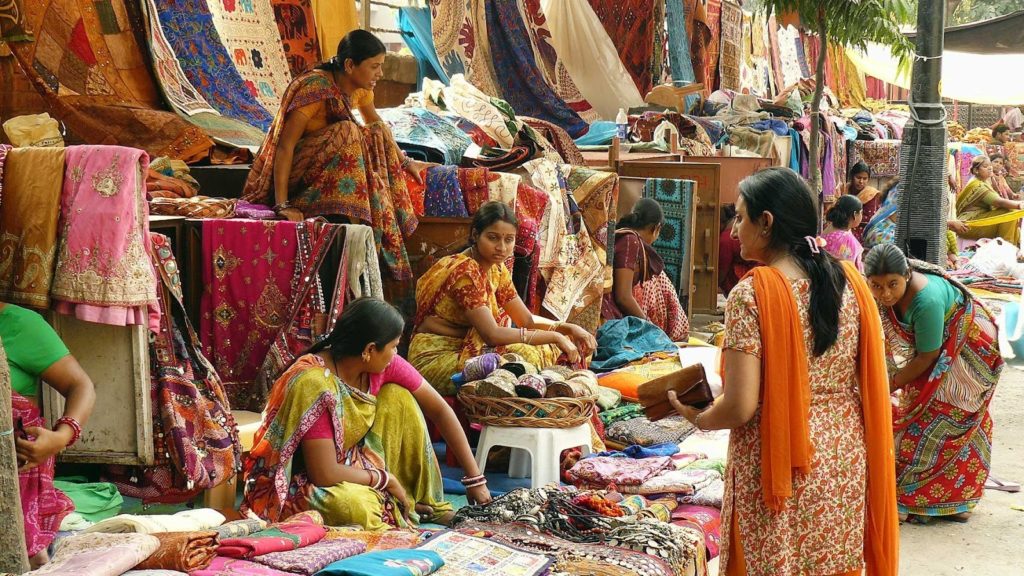
I personally really dislike bargaining (though I know some people really enjoy it) but I’m good at it if I really need something. I am very firm when doing this so sellers are totally cornered – they know that they will not get their way, not even an inch. They also know that I know the actual prices:) (They have the sixth sense about that too!)
So I end up paying even less than some Indians do, but that’s, I guess, my business-savvy side – I was working for myself for around eleven years now. My boyfriend sometimes jokes that he doesn’t know any Indian who gets so much value for their money as I do in their home country:)
I prefer going to shops with fixed prices, and for those new to India there are some good government-approved fixed low price shops in major Indian cities. There you can buy incense, sandalwood powder, Indian wooden sculptures, hand-made jewelry boxes and other interesting items.

Too much attention
I also avoid shops were sellers would just not go away (those are usually from the neighboring state of Tamil Nadu, if you’re visiting Kerala, that is). Many such sellers watch your every move, and this makes me feel uneasy. I don’t like to make choices when being watched this way – I need freedom to make decisions. So if I encounter sellers like that, I’m gone very fast.
Indians, on the other hand, love this attention! They ask many questions and want them to show this or that. I, on the other hand, prefer discovering items myself, and I think this applies to many westerners. And the worst thing is that if you ask to be left alone, they really take it personally though you may do so in the politest manner!
When it comes to Kerala people, I get too much attention when I visit makeup or jewelry stores in shopping centers. Within minutes I usually find myself surrounded by a circle of female shop assistants offering the most expensive items in store. This is the reason I buy items as such online, or when I’m lucky enough to find a more relaxed sales environment I may buy the items physically.
People working in tourist sector are different
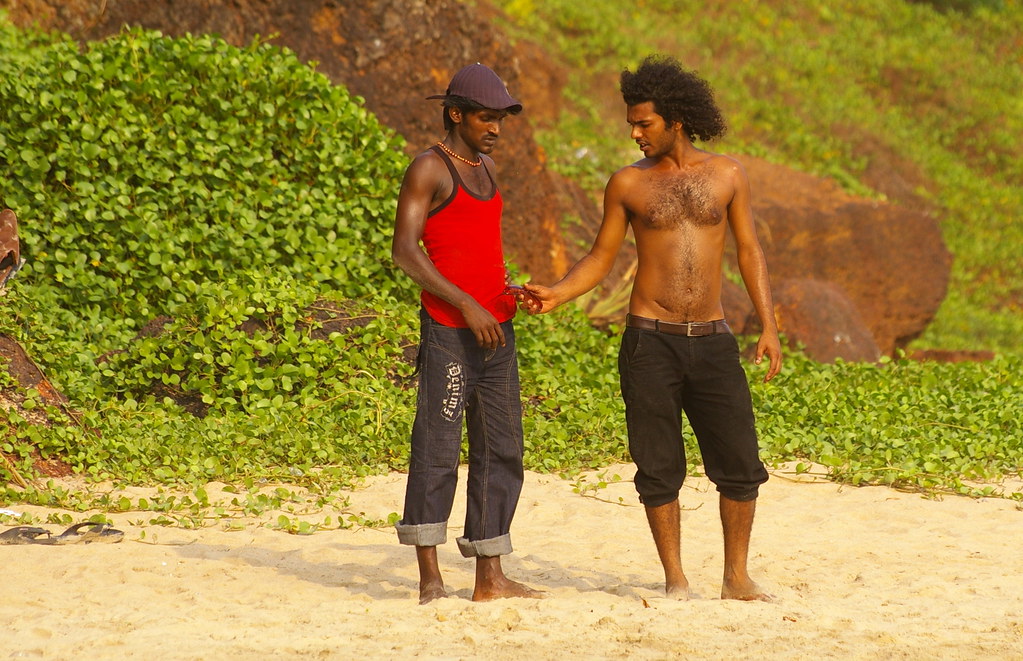
There is a certain type of Indians that the tourist sector attracts. For example, you get a certain type of Indian people who come to study to Western countries (the richest class), and you also get a certain type of people who choose to work in bars, cafes, hotels and restaurants in tourist places of India.
Usually such people come from broken families, or are drug addicts (or have other addictions), without education, and want to have an easy way out of the hard struggle of life by marrying some wealthy foreigner and leaving India. Most people in India believe life in the West to be very easy and that they can make money in no time!
Many people working in tourist sector have agendas, therefore. Some watch Hollywood movies, come to the conclusion that all white women are loose, and decide to spend several years in tourist places to get as much sex as they can and then they marry some Indian village girl, when the marriage gets arranged.
(If a man is over 30, it’s 99% likely that he’s married and has kids. In North India men marry much earlier; many have families when they are in their twenties and child marriage still exists in India as well. You can read about girl marriage age debate in India here.)
Some Indians working in the tourist sector look for older women to seduce so that they get their money and, if they marry, live abroad. Some of them are extremely good-looking, but this fact seems not to raise any red flags for most older women for some reason.
Some choose this sector because they don’t want to work hard (work in cafes and restaurants here is usually very laid back, and also work in certain hotels is very easy).
Unfortunately, some foreigners come here for cheap alcohol and drugs (and for sex too, for that matter!) and they easily find fellow local addicts to spend time with.
Those addicts represent the lowest rung in the Indian society and no self-respecting family would give their daughter to such men. So they usually end up marrying foreign women, them being unaware of what’s going on.
Also, some men do not want the responsibility of being a sole bread winner as they perceive it to be a sort of slavery for the rest of their lives; so such men may marry western women for easier life (as the western woman is going to work, thus removing much burden from the man).
Although there are some people working in the tourist sector without such agendas and who are happily married and who are loyal to their wives, most definitely have agendas. So you have to be careful, and you should also understand that the people you meet in tourist places do not represent the average working-class Indian!
You are a target in India

Western people are centers of attention in India for many reasons. First, poor and sometimes middle-class Indians love looking at them because of the lightness of their skin. Bollywood is full of light-skinned celebrities so you will feel like one when you’re in India.
I saw some village Indians getting into a trance-like state when seeing white people for the first time.
Also, many Indian people think that money falls from the sky in the West, so to speak, so they assume all westerners to be rich. That, of course, makes you a target for thefts and other ways to get money from you (like someone befriending you and after some time asking to borrow cash from you).
You always need to be careful with your belongings and the people you allow to be close to you, therefore.
Being approached by strangers

When someone approaches you, please do not give them any attention but just keep walking. How would you behave if someone suddenly approached you where you live, wanting to know your name, where your’e from, etc.?
You would probably walk away, and do so fast. However, when people are in a distant country, they somehow think people are different there. So they sometimes treat the strangers who approach them as friends.
That’s a big mistake. If you’re approached in India, those people who approach you don’t do this because they’re nice. They want something from you. The exception to this is when you’re approached by a family and they only want your photo.
Also, sometimes you get really nice families who invite you to drink tea with them, but that also can be risky and it’s not advisable for first-time tourists to do. It’s better to stay here for a while to understand which people can be trusted and which can’t before agreeing to get involved. However, usually families are harmless.

But if you’re approached by a single male, female, or a group of men, do not engage in a conversation. Keep walking!
They either want your money, to sell you something, or they (men, that is) want to form intimate contact with you with the hope of either getting their sexual fantasies fulfilled (as a result of them watching white p**rn movies) or maybe they want to get married so that you take them out of India.
Sometimes they approach you out of nowhere, treat you very nicely and show you round… to ask money for their “guide” services at the end of the day!
Sometimes beggars approach you who usually have large families with different occupations or belong to large, mafia-like clans. Being a beggar, therefore, is one of the occupations. I’m not saying all beggars pretend, but many do!
The way you can tell if someone is a beggar is by daily observation of that person to understand his connections and whereabouts. Also, if you see them searching for food in waste places, of course they are genuine beggars.
Sometimes those who approach you and form friendships with you use a lot of your time to finally reveal the true (selfish) reason they engaged in a conversation with you in the first place.
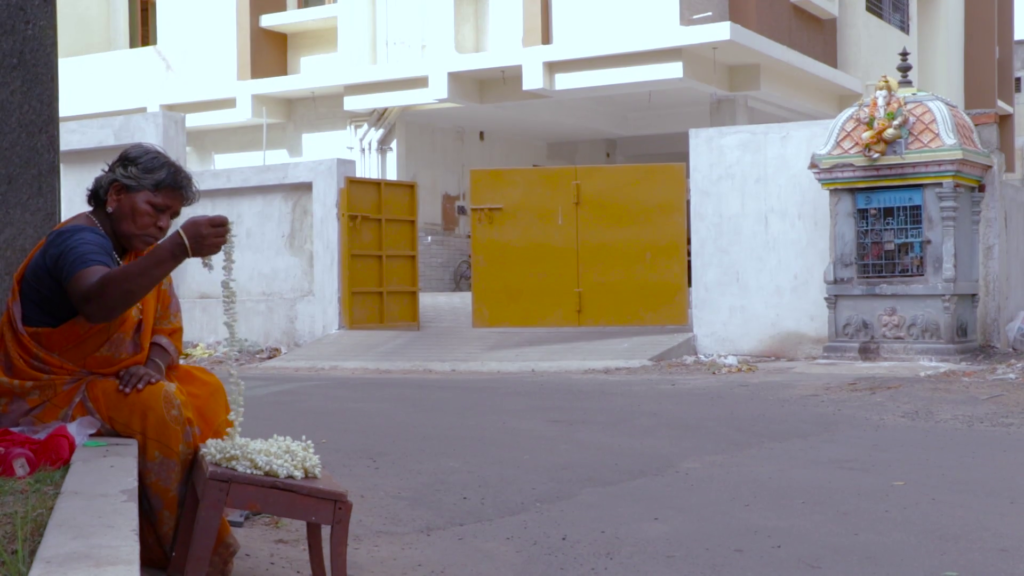
For example, they may finally ask money for some business venture or some small thing, or tell a sad story about them not being able to afford education for their kids or losing their house.
The purpose of all those stories, of course, is to make you part with your money. Usually those problems are non-existent, and it’s just a business strategy to profit from gullible tourists. And some people are absolute experts at telling dramatic stories; they may even make you cry!
So you will end up wasting a lot of precious time if you engage with people as such. Please, please do understand… if someone approaches you out of nowhere, they have a plan about how to use you.
Polite refuses don’t work on certain people who approach you out of nowhere. They will keep following you if you treat them nicely. So you either must be rude and ask them to leave you alone or else you will call police, or (better) just keep walking as though you did not hear nor saw them at all.
What to do if you are followed in India
And if you get followed by some weird man (if you’re a woman), never be afraid. Those men are true cowards, and will either run away or walk away when you face them confidently and tell them to stop following you or you will call police.
In Kerala, for example, if a foreigner complaints about being followed, usually offenders get severe beating from the police. So it makes sense why they leave your sight so fast when you threaten to call for help!
Being loud

Many foreigners are very loud when they’re in India. They go to some local eatery and clamor so that everyone would pay attention to them. This is such bad manners; they may think that they look awesome, but the reason they get attention is because Indians think they are fools.
In general, many Indians perceive foreigners to be crazy, so this view should not be strengthened! When in public, one should talk like one does in one’s own country; here people are as aware as in the West, so if you would cause disapproval by the way that you act in the West, the same will apply here, though Indians tend to keep their disapproval inside rather than show it.
People who make fools of themselves are not respected here. Indians may act very kindly towards such individuals, but in their hearts their respect for such people is zero.
So judging by the external behavior of Indians, foreigners may be under the impression that Indians approve of such a show, but they really do not; they’re just polite enough not to show their disapproval as being polite to a stranger is part of their culture.
Beware of these money issues
Two things you should be aware of when it comes to your cash. The first thing is receiving wrong change, which is very common. To avoid this, familiarize yourself with the currency and do not leave the place of purchase until you count your money in front of the person who gave you change.
Although the color if Indian currency keeps changing, sometimes a big and small note is similarly colored (a very silly thing to do), like INR 10 and 200. So make sure you are aware which one is which.
Also, an extra zero can be added if you’re paying by card in certain shops, so you have to check which amount the seller is keying in (sometimes it’s not shown on the credit card reader so you need to look which amount he’s inputting).
Also, do not allow the seller to go anywhere with your card, or to insert it into any other machine no matter what excuse he gives. Sometimes this insertion can be done very quickly, so do not take your eyes off the card, and this will discourage unscrupulous sellers from defrauding you.
In general, avoid using your card in any small shop; only use it in large, higher-scale places like certain shopping centers, and be careful even then!
The second thing to aware of about your cash is being given damaged notes. In India, if a note is torn, usually nobody will accept it. If it’s scribbled on, that’s fine, but make sure there are no torn corners (no matter how tiny); or sometimes the note is totally torn and sellotaped – avoid those too, of course.
If you find yourself in possession of a torn note, you can go to a bank and maybe they will change it. Just make sure you take your passport with you.
Beware of stray dogs
Many foreigners are fascinated by the wildlife they see on Indian streets, be it monkeys, goats, cows, dogs, elephants or anything else. They especially like feeding and touching stray dogs.
There’s a reason why Indian people don’t touch them. Those dogs are not clean; they carry all sorts of bugs and bacteria on their fur. If you get too close to stray dogs, you will end up getting some of their bacteria.
I don’t know what one particular type of bacteria is called, but many people touching stray dogs get it. Then, several hours later, they start itching. If they don’t go to the doctor, the itching spreads until they have to.
Then they find out that this happened due to being too close to stray dogs; they will be prescribed antibacterial topical preparation which they will have to apply all over the body to kill the bacteria.
So that’s why Indians stay away from stray dogs. They avoid them, of course, for the threat of rabies too.
In the evening stray dogs tend to hang around in packs and can become quite aggressive in certain places of India. So that’s yet another reason why Indians avoid them.
Display of wealth encourages materialism and unhappiness
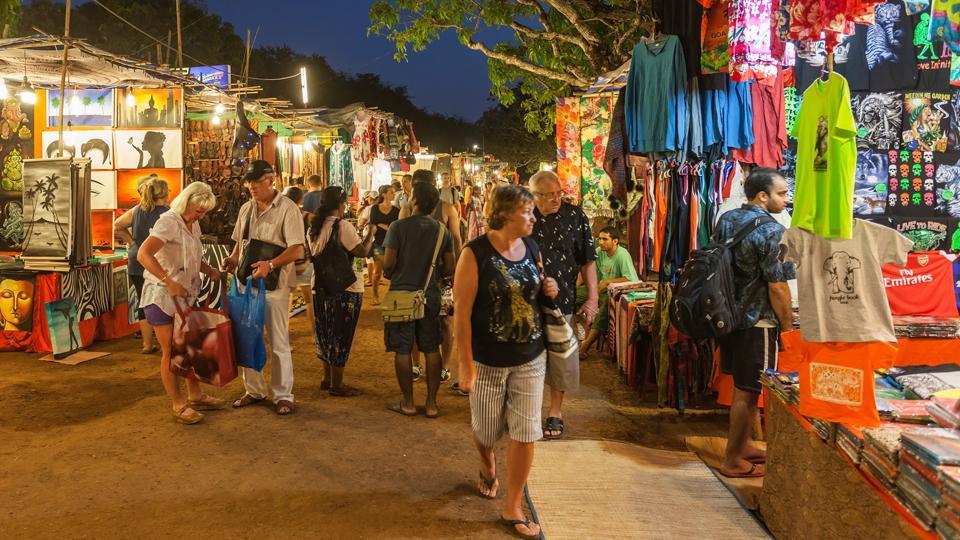
Due to the impact of the material nature of the western culture, Indians are becoming very money-focused and an impressive smartphone or laptop is becoming a big deal.
Simplicity is disappearing, the nature is no longer respected, and commerce is transitioning from necessity to indulgence. People’s morals are deteriorating, to be replaced with the hollow-lifestyle of the West.
So that you’re not responsible for this increasing trend, when in India, try not to display any expensive cameras or other gadgets when visiting poor areas where people can’t afford food, let alone luxury items.
I see in the rich youth of India the poverty of spirit which is a usual phenomenon among the youth of western countries. Children and teenagers belonging to poorer families still have that spark in them, but unfortunately it quickly disappears when an empty western way of life takes hold.
Conclusion
Although this article may have seemed negative, positive points are already covered in many books and articles. I had to take this off my chest; I had to address the mistakes foreign people keep repeating, making themselves look bad in the eyes of Indians.
The way I see it is that if you visit someone’s home, you probably try to act respectfully, in accordance with home rules, instead of acting how you want to just because.
So the same applies to visiting other countries; we should respect the rules people of other countries abide by rather than causing shock with our behavior, and subsequent dislike of the country and culture we represent.




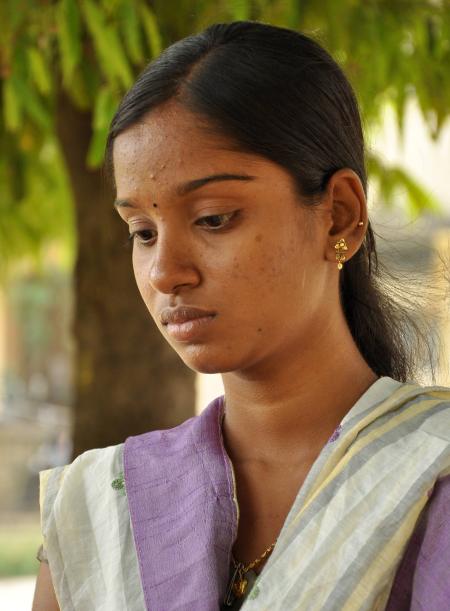

Very very true all what have you written in this article, Simona. Since it’s written by you, a foreigner in India, it will be very informative, believeable and an eye-opener for all the foreigners visiting India now and in future. They all must read this article before planning their visit to India. It make a great dos and don’ts for them.
Elaborately and nicely written, Simona. Keep it up.
Hansa
Thank you very much, Hansa.
My wife and I have three years on the ground in India and 3 years or 8 we are still just guests. Bottom Line, So many Westerners fail to travel with cultural respect.
Thank you . There was considerable truth about what you have written. I am an Indian and do travel overseas and the first principle i follow is to study the local culture , and traditions of the country am visiting and if possible do make an effort to pick up the language of the country concerned . My experience has been that if one respects the people , their culture traditions etc , one gets the respect back and one is able to integrate effortless;ly with the local people concerned . This applies to all countries concerned , including India .
Thank you for your comment, Deepak.